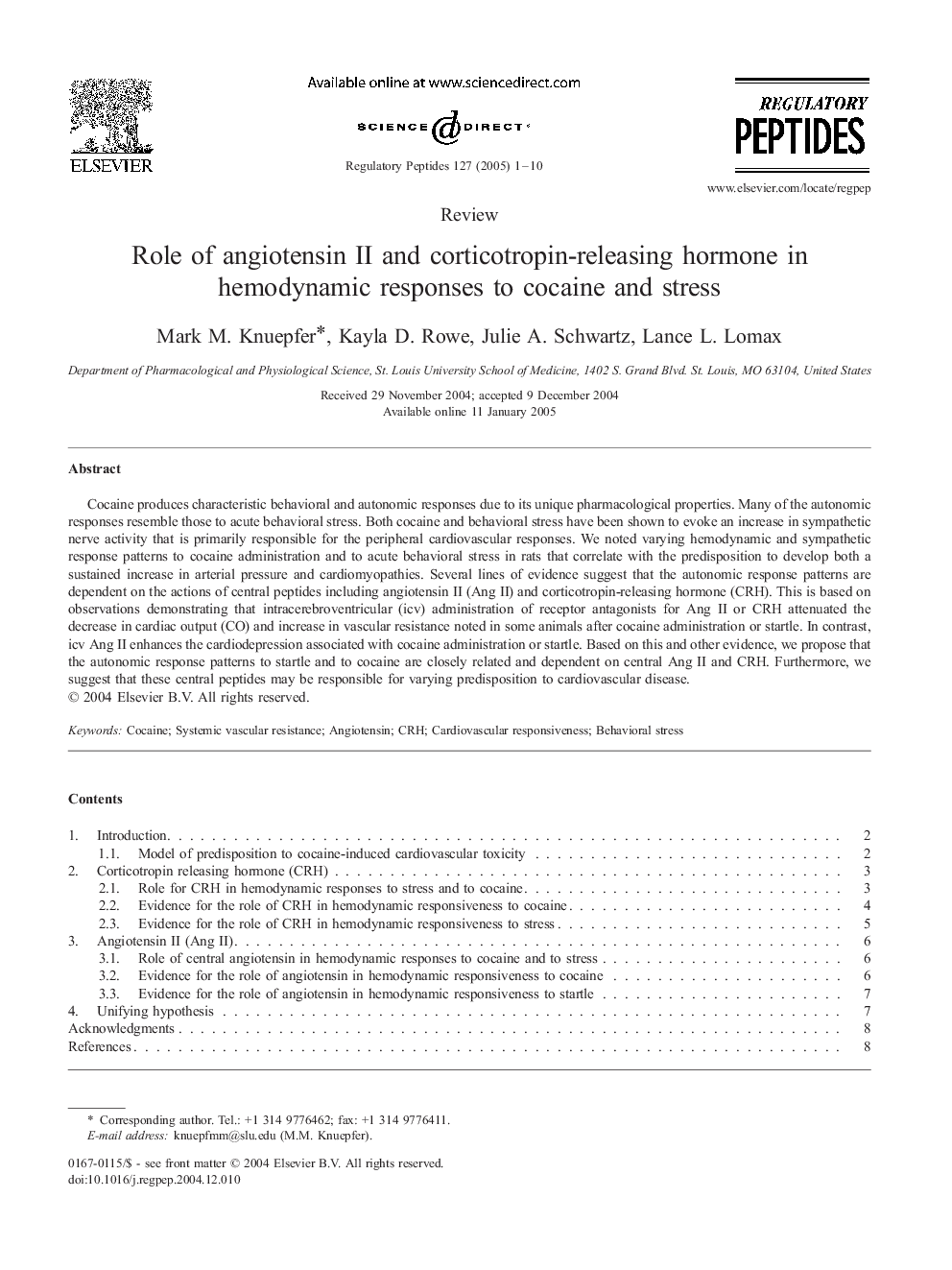| Article ID | Journal | Published Year | Pages | File Type |
|---|---|---|---|---|
| 9894435 | Regulatory Peptides | 2005 | 10 Pages |
Abstract
Cocaine produces characteristic behavioral and autonomic responses due to its unique pharmacological properties. Many of the autonomic responses resemble those to acute behavioral stress. Both cocaine and behavioral stress have been shown to evoke an increase in sympathetic nerve activity that is primarily responsible for the peripheral cardiovascular responses. We noted varying hemodynamic and sympathetic response patterns to cocaine administration and to acute behavioral stress in rats that correlate with the predisposition to develop both a sustained increase in arterial pressure and cardiomyopathies. Several lines of evidence suggest that the autonomic response patterns are dependent on the actions of central peptides including angiotensin II (Ang II) and corticotropin-releasing hormone (CRH). This is based on observations demonstrating that intracerebroventricular (icv) administration of receptor antagonists for Ang II or CRH attenuated the decrease in cardiac output (CO) and increase in vascular resistance noted in some animals after cocaine administration or startle. In contrast, icv Ang II enhances the cardiodepression associated with cocaine administration or startle. Based on this and other evidence, we propose that the autonomic response patterns to startle and to cocaine are closely related and dependent on central Ang II and CRH. Furthermore, we suggest that these central peptides may be responsible for varying predisposition to cardiovascular disease.
Related Topics
Life Sciences
Biochemistry, Genetics and Molecular Biology
Biochemistry
Authors
Mark M. Knuepfer, Kayla D. Rowe, Julie A. Schwartz, Lance L. Lomax,
